
Assoc. Prof. Dr. Şeyda Ertekin is a faculty member at the Department of Computer Engineering at Middle East Technical University (METU). She serves as the Vice Director of the METU-BILTIR CAD/CAM and Robotics Research Center and is also one of the founders of the Artificial Intelligence and Big Data Analytics Laboratory under the METU Digital Transformation and Innovation Center (METU-DTX).
Dr. Ertekin received her bachelor’s degree from the Department of Electrical and Electronics Engineering at METU and began her engineering career at ASELSAN. She obtained her master’s degree with top honors from UL-Lafayette in the United States, and subsequently pursued her Ph.D. studies in the field of Artificial Intelligence within the Department of Computer Science and Engineering in the U.S. She graduated from Penn State University with the “Best Doctoral Dissertation Award.” She worked at NEC Research Laboratories in Princeton, NJ, where she contributed to widely used open-source artificial intelligence software. She continued her postdoctoral research in Artificial Intelligence at the Massachusetts Institute of Technology (MIT), conducting her studies at both the MIT Sloan School of Management and the MIT Computer Science & Artificial Intelligence Laboratory (CSAIL). At MIT, she was among the first researchers to be supported by funding from the MIT Intelligence Initiative. She was also one of the MIT researchers who won first place in the INFORMS “Innovative Applications in Analytics” competition, which recognizes excellence in data science applications in the U.S. Currently, she leads national and international projects at METU aimed at developing intelligent systems through artificial intelligence and data science technologies. While at METU, she also collaborated with the European Organization for Nuclear Research (CERN), contributing to projects and publications that provided AI-based solutions in particle physics. She served as a member of the Central Executive Board of the Turkish Informatics Association (TBD) during its 33rd, 34th, and 35th terms. Assoc. Prof. Dr. Şeyda Ertekin has been recognized by Digital Age magazine as one of the top 30 Turkish women who inspire the global digital innovation ecosystem.
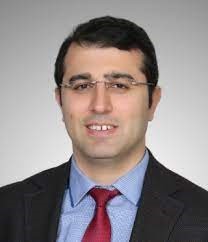
Dr. Hüsnü Dal is Professor at the Department of Mechanical Engineering at Middle East Technical University in Ankara, Türkiye, where he has initiated the Computational Micromechanics Research Group in Spring 2014 and has conducted research funded Turkish National Science Foundation (TUBİTAK), Horizon Europe under Marie-Curie Individual Fellowships, WIDERA; and private funding, e.g. BOSCH GmbH. Dr. Dal obtained his B.S. degree in Civil Engineering from METU in Ankara, Türkiye in 2001, and his M.Sc. degree from the interdisciplinary programme ‘Computational Mechanics of Materials and Structures’ at University of Stuttgart in 2005. He received his Ph.D. degree in Solid Mechanics from Dresden University of Technology, Germany, in 2011. After a short visit to ETH Zurich, He has joined Simulation Technologies Excellence Cluster (SIMTECH) in University of Stuttgart. He has been appointed as a full-time faculty member at METU since 2014. Dr. Dal has co-authored publications in journals such as Journal of the Mechanics and Physics of Solids, Computer Methods in Applied Mechanics and Engineering, International Journal for Numerical Methods in Engineering and Computational Mechanics and has delivered numerous invited presentations at research institutes and universities in Europe. He is the Scientific Research Projects Coordinator at METU since May 2017 and Head of the METU CAD/CAM Robotics Center since January 2023.
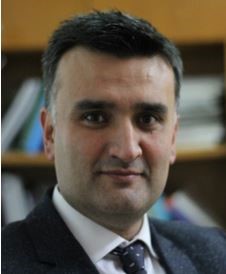
Prof. Dr. Ahmet Yozgatlıgil currently serves as the Rector of Middle East Technical University (METU). He completed his bachelor’s and master’s degrees in the Department of Mechanical Engineering at METU and received his Ph.D. in Mechanical Engineering and Mechanics from Drexel University in the United States in 2005. Yozgatlıgil began his academic career in 1996 as a research assistant in the Department of Mechanical Engineering at METU. During his doctoral studies, he held research positions at both Drexel University and the University of Maryland. He returned to METU as a faculty member in 2007 and was awarded the titles of associate professor in 2014 and full professor in 2019. His research areas include energy systems, internal combustion engines, thermodynamics, combustion, fluid mechanics, and energy conversion in microgravity environments. He has published numerous national and international papers and has led various research projects in these fields. In addition to his academic work, Yozgatlıgil has played an active role in administrative duties. He has served as Advisor to the Rector, Director of the Vocational School, and Vice Rector at METU. He has also held senior positions outside the university, including Vice President of TÜBİTAK and Deputy Minister at the Ministry of Industry and Technology.
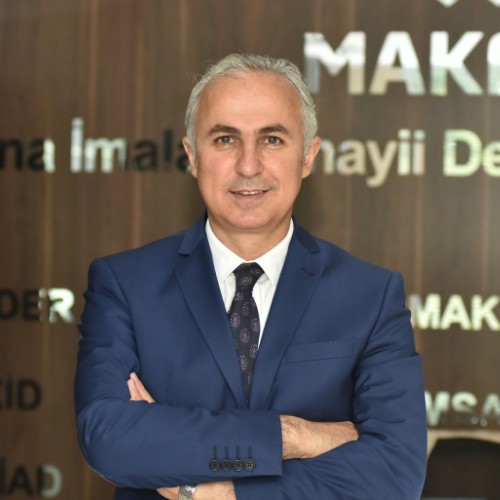
Zühtü Bakır graduated from the Department of Metallurgical and Materials Engineering at Yıldız Technical University. He completed the “EU Expertise Program” at Ankara University’s European Community Research and Application Center, as well as the “EU Lobbying, Organization, and Negotiation Skills” program at the Netherlands Institute of International Relations (Clingendael). He also holds a master’s degree in “Technology Policies and Innovation Management” from Ankara Social Sciences University. Bakır began his professional career in the aluminum sector in 1992 and later transitioned to the steel industry. In 1998, he joined the Ministry of Industry and Technology, where he held various positions from expert to director general. On June 15, 2017, he left public service to become the Secretary General of MAKFED – the Turkish Machinery Federation. He served as the Secretary of the Third Industrial Council, held in 2013, and organized key international events such as the Turkish-Arab Industrial Cooperation Conference and the D-8 Ministers of Industry Meeting. Bakır played an active role in the preparation and implementation of major policy documents, including the “Turkey Industrial Strategy Document (Towards EU Membership) (2011–2014)” and sectoral strategies for machinery and automotive industries.
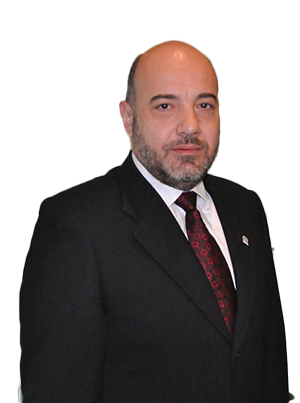
Berke Ercan holds degrees from the Department of Electrical Engineering at Yıldız Technical University, the Department of Philosophy at Istanbul University, and a master’s degree in Automotive Engineering from Kocaeli University. He is currently pursuing his Ph.D. in the same field. With 32 years of professional experience in the automotive industry—both in OEM (original equipment manufacturers) and the supplier sector—he has worked at companies such as Oyak-Renault Bursa, Renault France and Spain, Valeo-Nursan Electrical Systems, Net Cıvata, and currently Cavo Otomotiv. Throughout his career, he has held various positions including engineer, chief engineer, engineering manager, technical director, plant director, business unit director, deputy general manager, and general manager. He has served as Secretary General, Board Member, and Chairman of the Board at the Yıldız Technical University Alumni Association and the Yıldız Technical University Social Services Association. He has also held positions as Board Member and Vice Chairman of the Board at TAYSAD (Automotive Suppliers Association of Turkey), and is a member of professional organizations such as EMO (Chamber of Electrical Engineers) and SIA (Société des Ingénieurs de l’Automobile). Additionally, he has participated in occupational committees at the Kocaeli Chamber of Industry and has been a member of the faculty advisory boards of Marmara, Kocaeli, and Gebze Technical Universities. He speaks French, English, and Italian.
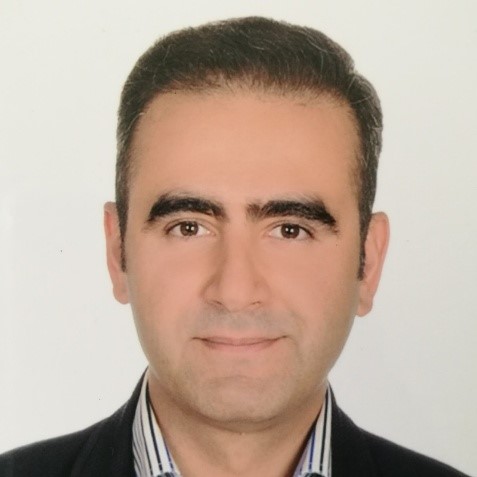
Ozan Çınar serves as the Digital Transformation Director (Digital Transformation Chief) at Aksan Çelik Dövme, a defense and manufacturing industry company based in Ankara. In this role, he coordinates digitalization processes across various areas from production to management and develops digital solutions in line with the company’s Industry 4.0 vision. Çınar began his education at the National Defense University, where he acquired a strong foundation in engineering and management, which he effectively applies in digital projects integrated into the defense industry. Throughout his career, he has gained experience in areas such as production technologies, data analytics, automation systems, ERP integration, and AI-supported production optimization. Within Aksan Çelik Dövme, he personally oversees the development and implementation of the company’s digital transformation strategy.
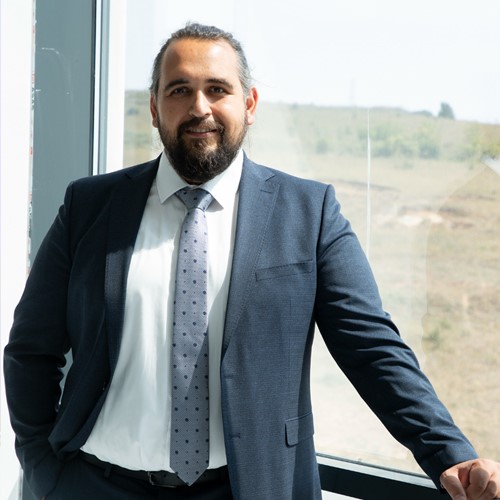
Ranked among the top 100 most successful students in Türkiye, Ömer Orkun Düztaş graduated from the Computer Engineering Department of Middle East Technical University (METU). From the early stages of his academic career, his interest in entrepreneurship combined with his passion for image processing. Driven by his interest in photography, he was drawn to this field and accordingly completed his graduation thesis on image processing.
Immediately after graduation, Düztaş embarked on his entrepreneurial journey. At a time when the concept of “Industry 4.0” had not yet become widespread, he identified a significant market gap and began his work. Starting with the idea of developing industrial quality control cameras, he and his team provided industrial image processing solutions. In this process, they developed camera systems for quality control and machine guidance, delivering advanced image processing technologies to various sectors. In 2020, Büyütech decided to focus on the automotive industry and autonomous vehicle technologies, undergoing a major transformation in line with Düztaş’s vision of developing vehicle perception systems inspired by nature. Advocating that technology should be inspired not only by human inventions but also by the efficient systems optimized by nature over millions of years, Düztaş prioritizes this perspective to enhance the effectiveness of autonomous systems. With over 10 years of experience in image processing and computer vision, Düztaş specializes in developing high-performance imaging systems. Since the founding of the company, he has led the technical advancements as the software lead and, at the same time, shaped the company’s growth with a strategic vision in his role as an executive. Overcoming the challenges of combining technical leadership with management in the early years, he now guides Büyütech on a path of innovation and global growth together with his professional team.
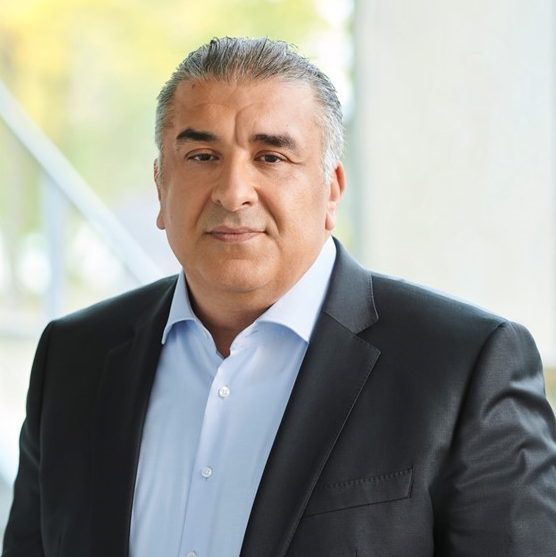
Mehmet Kürümlüoğlu holds a degree in mechanical engineering (Dipl.-Ing., equivalent to a master’s degree in Germany) from the University of Stuttgart. In 1998, he began working as a researcher and project manager at the Institute of Human Factors and Technology Management (IAT) at the University of Stuttgart. Since 2002, he has been working at the Fraunhofer Institute for Industrial Engineering (IAO) in Stuttgart. He is the head of the “Advanced Systems Engineering” Research Department and the Fraunhofer IAO PDM/PLM Consulting Center. He also lectures on Product Lifecycle Management (PLM) at the Faculty of Business and Management of the FOM University of Applied Sciences and at the University of Stuttgart. He is the instructor of the “PLM Professional” certification course. With extensive experience gained through more than 100 national and international consulting and R&D projects, he has specialized in areas such as Advanced Systems Engineering, PLM systems/Digitalization in R&D, Industry 4.0/Digitalization/Industrial Internet of Things (IIoT), R&D Management, innovation and technology management, and R&D strategy development. He has worked across various sectors, primarily including automotive, machinery/special machinery, component manufacturing, white goods, and medical technologies.
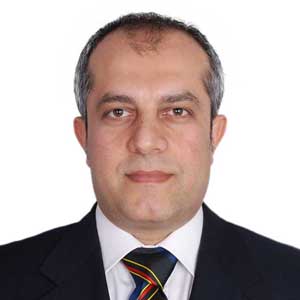
Tarkan GÜRBÜZ is currently an Associate Professor at the department of Computer Education and Instructional Technology (CEIT) of Middle East Technical University (METU) in Ankara, Türkiye. He is one of the founders of the METU Digital Transformation and Innovation Center (METU-DTX), Augmented and Virtual Reality (AR/VR) Laboratory, and he serves as the METU-DTX Academy Training Director and AR/VR Laboratory Co-Director. He is also a member of Global Development Learning Network (GDLN) Board of Directors, CEPIS Türkiye Digital Skills Policy Special Interest Network, Turkey Informatics Association (TBD) Executive Industry Board and he also serves as a member of the Scientific and Advisory Board in some institutions. He holds a PhD degree from the department of CEIT, METU, an MSc diploma from the same department and university, and an MBA degree in International Business from MIB Trieste School of Management in Italy, and a BSc degree in Mathematics from METU. He also holds a number of certificates following the completion of technical, career, and institutional trainings. His areas of research interest include distance education, e-learning, AI in education, AR/VR technology supported innovative next generation learning environments, digital transformation, education and training for industry 4.0, and adult education.
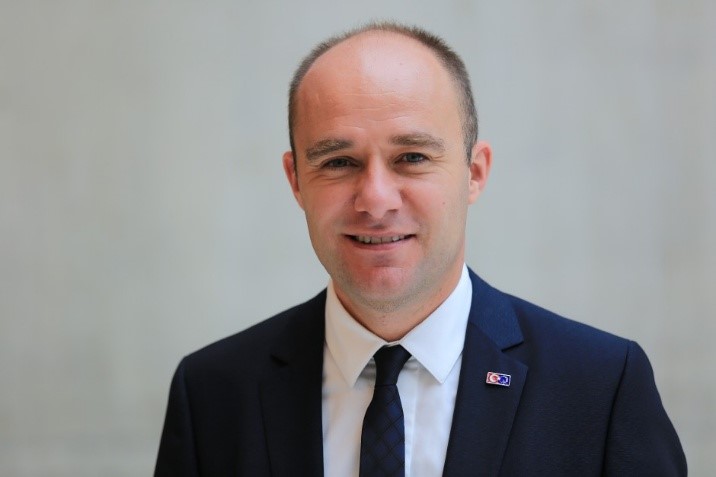
Bülent Özcan currently serves as the Director General for Financial Cooperation and Project Implementation at the Directorate for European Union Affairs under the Ministry of Foreign Affairs of Türkiye. He graduated from the Department of International Relations at Middle East Technical University (METU) in 1999 and earned his master’s degree in EU Economics from the European Union Institute of Marmara University. In 2011, he participated in the Leadership Program at Harvard Kennedy School.
Starting his career in 2001 as an assistant expert at the EU Affairs Directorate, Özcan has since held roles as expert, coordinator, and head of department. With nearly 20 years of experience in project management, he is responsible for the coordination, monitoring, and evaluation of the EU’s Instrument for Pre-Accession Assistance (IPA) in Türkiye. He manages key cross-border cooperation programs such as the Black Sea Basin and Türkiye-Bulgaria programmes and coordinates Türkiye’s participation in major EU initiatives like Erasmus+ and Horizon 2020. As an expert in the management of EU funds, social entrepreneurship, innovation, and smart cities, Özcan has been a speaker at numerous national and international events and plays a pivotal role in the successful implementation of Türkiye’s financial cooperation with the European Union.
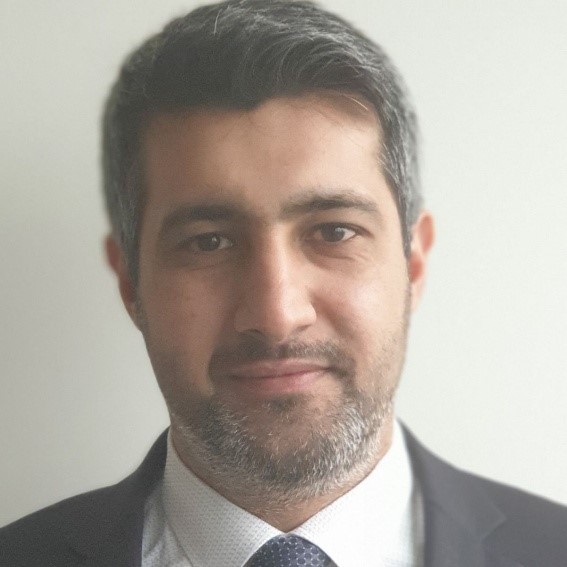
Emre Dabak was born in Ankara in 1986. He received his bachelor’s degree in Electrical and Electronics Engineering (English) from the Faculty of Engineering and Architecture at Anadolu University in 2009. In 2019, he completed his master’s degree at Gazi University, Institute of Science and Technology, Department of Electrical and Electronics Engineering with a thesis titled “Effective Antenna Array Design in Traffic Speed Detection Radar Applications.” Dabak began his civil service career in 2009 as an Assistant Expert at the Ministry of Industry and Trade. In 2014, he was appointed as Industry and Trade Expert with a thesis titled “The Development and Branding Potential of Turkey’s Automotive Main Industry.” Between 2014 and 2020, he served as Coordinator of the Automotive Industry Division at the Directorate General for Industry, and between 2022 and 2024, he worked as Head of the Department of Digital Technologies at the Directorate General for National Technology. Throughout his career, Dabak has been involved in key initiatives such as the development of Türkiye’s domestic automobile, charging infrastructure, the digital transformation of industry, artificial intelligence, and data center infrastructure. He was appointed Deputy Director General for National Technology by Presidential Decree No. 2024/315.
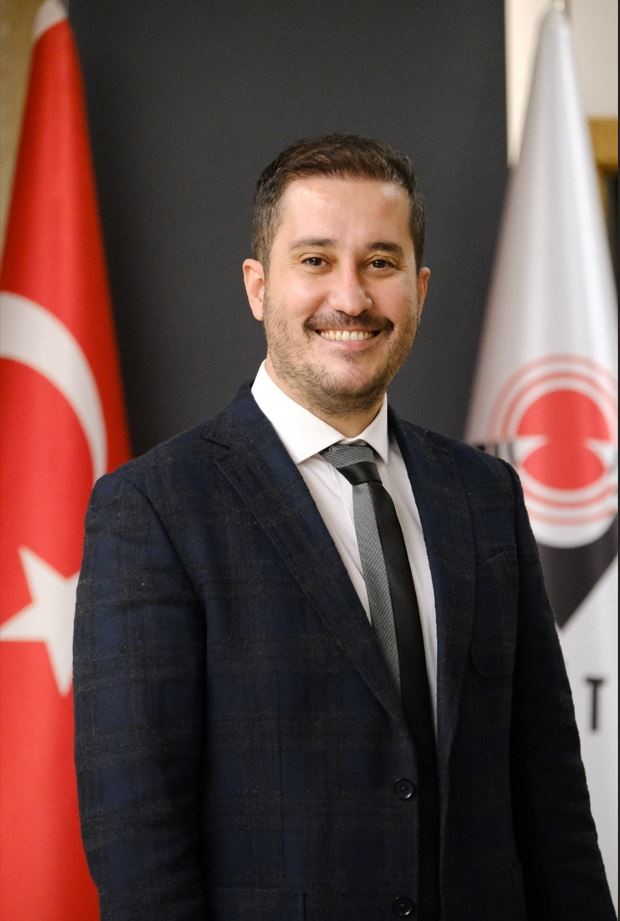
Çağrı Yıldırım completed his undergraduate studies in International Relations and the European Union at İzmir University of Economics in 2010, and received his master’s degree in European Studies from Sabancı University in 2012. In 2015, he began working at TÜBİTAK’s Department of International Cooperation as an assistant expert and was promoted to expert in 2018 with a thesis on “Smart Cities.”
From 2015 to 2021, he served as the National Contact Point for the Energy area of the Horizon 2020 Programme. Since 2021, he has continued this role for the Climate, Energy, and Mobility Cluster under the Horizon Europe Programme. Yıldırım has coordinated several EU-funded projects, including GEORISK, C-Energy 2020, and ERA-NET Smart Cities. Since 2015, he has also represented Türkiye as a national delegate in the EU’s Strategic Energy Technology Plan (SET-Plan). As the coordinator of the “Turkey in H2020” IPA project, he plays a key role in advancing national strategies to enhance the participation of Turkish researchers in EU research and innovation programmes.

Marco Kayser is a senior researcher in the field of Technology and Innovation Management at the Fraunhofer Institute for Industrial Engineering (Fraunhofer IAO). He holds a master’s degree in Technology Management from the University of Stuttgart, with a focus on technology management and organizational development. Since 2015, he has been working at Fraunhofer IAO. Prior to that, he gained experience in the production and R&D departments of leading German automotive manufacturers and worked in a prominent mechatronics company specializing in technology and innovation management. His areas of expertise include R&D management, strategic foresight, evaluation of R&D domains, process management, and technology management for smart products and smart manufacturing. Kayser has hands-on experience across various sectors, including automotive, home appliances, machinery, semiconductors, electronics, and automation. He has also been involved in academia-industry collaboration projects related to the development of augmented reality (AR) applications and has published research in this field.
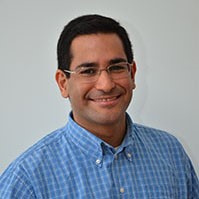
Prof. Dr. Erhan Eren completed his undergraduate studies in the Department of Electrical and Electronics Engineering at Bilkent University. He received his Ph.D. degree in 2002 in the field of Electrical Engineering from the University of Rochester in the United States. Eren began his academic career as a lecturer and researcher at the University of Rochester, and later held important positions in the technology sector. He worked as a research engineer and consultant at globally recognized companies such as Eastman Kodak and Motorola Research Labs. In 2006, Prof. Dr. Eren joined the academic staff at Middle East Technical University, where he serves as a faculty member in the Department of Information Systems at the Graduate School of Informatics. He also serves as the Head of the Department of Data Informatics.
His areas of expertise include big data analytics, cloud computing, digital transformation strategies, process management, context-aware systems, and the Internet of Things (IoT). He has taken part in many national and international projects by building bridges between academia and industry; at the same time, he carries out consultancy activities on digitalization and data-driven transformation in cooperation with the private sector.
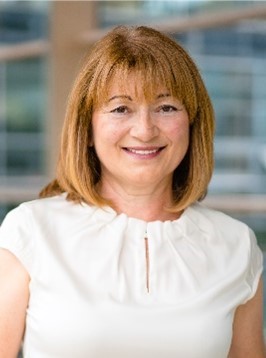
Prof. Dr.-Ing. Carmen Constantinescu graduated “Mechanical Engineering” at Technical University of Cluj-Napoca, Romania and accomplished the PhD in “Industrial Engineering” area, followed by MBA studies in Management at the same university. Since 2001 Prof. Constantinescu is working at Fraunhofer Institutes IPA and IAO in Stuttgart. In 2008 Prof. Constantinescu founded the department “Digital Factory” and currently is leading the research area “Digital Manufacturing4.0”. Prof. Constantinescu is involved in academic activities at University of Stuttgart (Germany), Royal Institute of Technology (Sweden) and Technical University of Cluj-Napoca (Romania), in areas of Modelling, Simulation, Digital/Virtual and Smart Factory. More than 30 research projects financed by European Commission; German Ministry of Research and Education, German National Science Foundation, and German industry; more than 5 Books, 50 scientific publications represent the contribution to the academic and industry communities. Prof. Constantinescu is involved in norming and standardization activities of the Association of German Engineers (VDI), contributing since 2007 for the elaboration of norms in the field of Digital Factory, Modelling and Simulation, Platforms, and Architectures for Digital Factory. On the European level, she is an expert of the European Commission, providing active support to the evaluation process for the Research frameworks FP6, FP7 and Horizon2020. Since 2013 Prof. Constantinescu acts as research coordinator and scientific referent for “Digital Twin” area at ARENA2036 – “Active Research Environment for the Next Generation of Automobiles”, one of nine research campuses of the “Research Campus – Public-Private Partnership for Innovation” funding initiative in Germany.
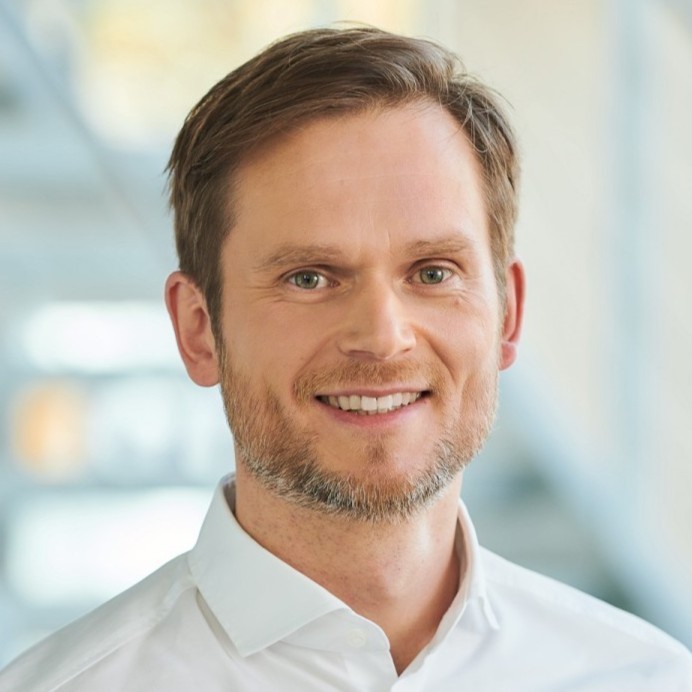
Dr.-Ing. Matthias Peissner is the Director of the Human-Technology Interaction Research Department at Fraunhofer IAO, where he also leads the Interaction Design and Technologies Team. Holding a Ph.D. in engineering and a degree in psychology, Peissner brings an interdisciplinary approach to his work, combining human-centered design with cutting-edge technology. His expertise lies in human-computer interaction, user experience (UX), and cognitive ergonomics. He leads research and development projects focused on emerging interaction technologies such as augmented reality, conversational interfaces, and intelligent assistants. Peissner also contributes to shaping innovation strategies for organizations through applied research in AI-driven systems and digital transformation. With a focus on making complex systems more intuitive and user-friendly, Dr. Peissner is a recognized thought leader in the field of human-technology interaction and frequently participates in national and international conferences as a speaker and advisor.
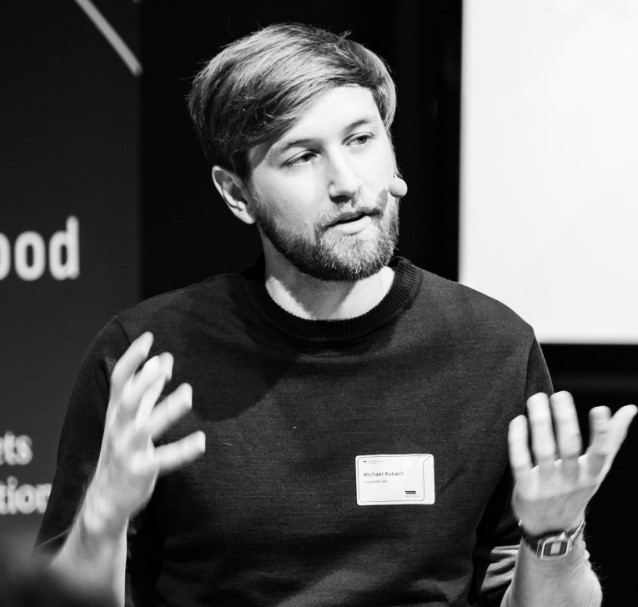
Since 2013, Michael Kubach has been researching issues around digital identity, trust and cybersecurity where he takes a socioeconomic, user-oriented perspective, at the Fraunhofer IAO – Team Identity Management. His experience includes work in European and national research projects such as the EU-funded projects ESSIF-TRAIN and LIGHTest (on trust infrastructures) and FutureID (federated identity management) as well as in national projects such as ONCE (combining self-sovereign identities and other eIDs in a wallet to build an ecosystem for secure identities), ENTOURAGE (trustable ecosystems), and SkIDentity (cloud identities). Moreover, he is consulting international companies and NGOs on topics around identity and trust infrastructures, infrastructures, IT-security as well as blockchain/DLT.
Michael’s research interests include socioeconomic aspects of digital identity and trust, cybersecurity, and blockchain/DLT as well as their role in building trustworthy ecosystems, e.g., for self-sovereign identities and organizational data-exchange. He holds a PhD in economics from Georg-August-University Göttingen and studied politics and administrative science as well as management in Konstanz, Göttingen and Lille.
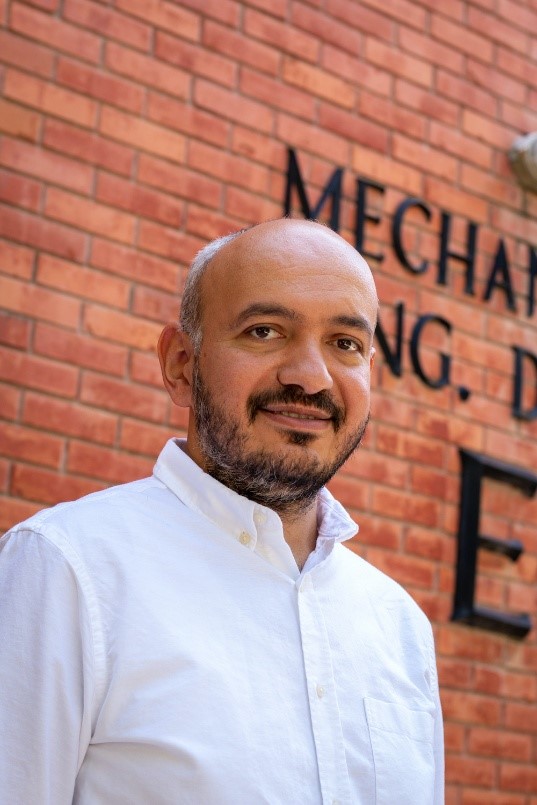
Prof. Ulaş Yaman has been a faculty member in the Department of Mechanical Engineering at Middle East Technical University (METU) since February 2016. He earned his Bachelor’s, Master’s, and Ph.D. degrees from the same department, successfully completing a minor in Mechatronics during his undergraduate studies. From 2014 to 2015, he conducted postdoctoral research as a visiting scholar in the Department of Computer Science at Purdue University. Currently, he also serves as the Director of the Welding Technology and Non-Destructive Testing Center at METU. Prof. Yaman’s research interests include additive manufacturing, CAD/CAM architectures, and computational geometry for design and manufacturing. He has published extensively in these areas and has received two best paper awards at international conferences.
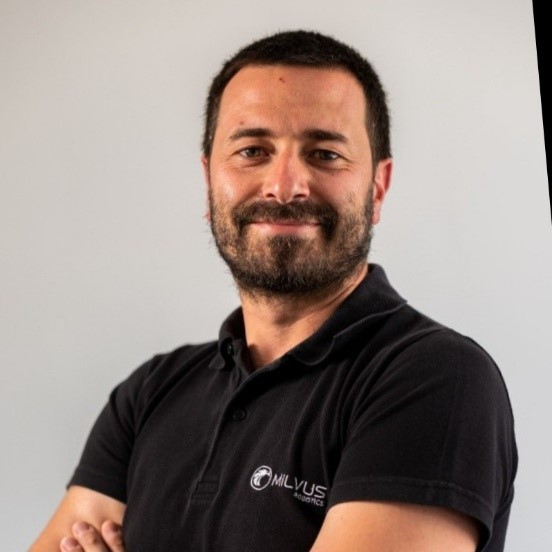
Hasan Ölmez is the co-founder and managing director of Milvus Robotics, a company he established in 2011. He holds a bachelor’s degree in Mechanical Engineering (2009) and a master’s degree in Mechatronics (2013), both from Middle East Technical University (METU). After graduating, he initially worked as a software development engineer before embarking on his entrepreneurial journey. At Milvus Robotics, Ölmez leads the development and implementation of autonomous mobile robots (AMRs) designed for industrial environments. He has pioneered several innovative applications in Türkiye, including mobile robot systems integrated.
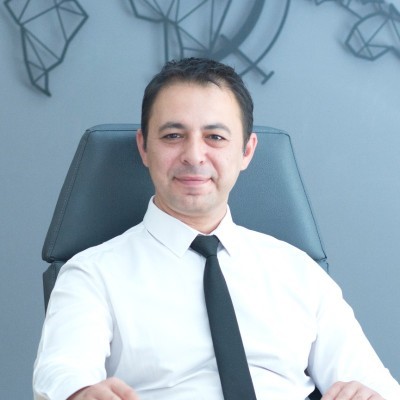
Murat Anıl Oral is the Co-Founder and General Manager of Pulsar Robotics Inc. A graduate of Middle East Technical University (METU) with a degree in Mechanical Engineering, Oral has specialized in industrial automation and robotic systems. In 2016, he founded Pulsar Robotics, where he has developed domestic solutions in areas such as robotic precision dosing, automated production lines, and assembly systems. He has successfully implemented robotic technologies that enhance operational flexibility in sectors including automotive, defense, home appliances, and food industries. Focused on integrating artificial intelligence with robotics, Oral aims to promote smart manufacturing concepts and has positioned his Ankara-based company as a competitive player in both national and international markets. In addition to managing his own enterprise, Oral is committed to training new generations of engineers. He frequently shares his expertise in robotics at industry summits and through media appearances, contributing to the growth of the robotics ecosystem in Türkiye.
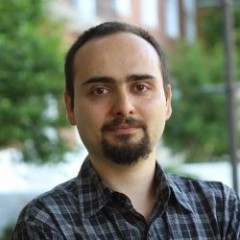
Assoc. Prof. Dr. Mustafa Mert Ankaralı is a faculty member in the Department of Electrical and Electronics Engineering at Middle East Technical University (METU) and serves as the Deputy Director of the university’s Center for Robotics and Artificial Intelligence. With a strong academic background in both mechanical engineering (B.Sc., 2008, METU) and electrical engineering, he completed his master’s degree in control engineering at METU and earned his Ph.D. in the United States in 2016, from Johns Hopkins University. His research interests include bio-inspired robotics, motion control, and the dynamics of robotic systems. He is particularly known for his work on legged locomotion and balance control in robots, having published on walking and running robots as well as humanoid robotics. Dr. Ankaralı played a pioneering role in developing the interdisciplinary robotics program at METU and has provided consultancy for national unmanned aerial and ground vehicle projects. He also contributed to Türkiye’s Lunar Research Mission as the departmental coordinator for METU EEE, assisting in the development of software and control systems for the space vehicle.
A nationally and internationally recognized expert in robotics, Dr. Ankaralı is deeply committed to educating the next generation of engineers and researchers in the field.
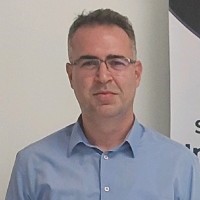
Hidayet Gürcan Tunç is the co-founder and technology leader of Robolaunch. In addition to this innovative initiative that develops cloud-based artificial intelligence and robotics platforms, he is also one of the co-founders of KAE Systems, which offers solutions in the field of telecommunications. Tunç completed his undergraduate education in the Department of Electrical and Electronics Engineering at Bilkent University. He received his master’s degree in Embedded Systems through a joint program between KTH Royal Institute of Technology in Sweden and Eindhoven University of Technology in the Netherlands. During this graduate education, he worked at some of Europe’s leading research laboratories, gaining expertise in IoT, embedded artificial intelligence, and distributed systems. Tunç began his professional career with a focus on software, cloud computing, and network systems. He worked as an R&D engineer and architect in various technology companies, particularly focusing on software-defined networks (SDN), edge computing, and autonomous system architectures.
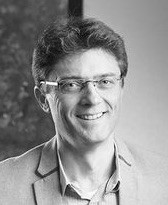
Professor Benoît Eynard is currently the leader of Industrial Engineering team of Roberval research center and holder of PTC Industrial Chair at the Université de Technologie de Compiègne – UTC, France. He is currently Editor in Chief of the International Journal of Product Lifecycle Management (IJPLM). He is member of the Design Society where he serves as chairperson for advisory board of the association since 2023. He is also member of the IFIP working group 5.1. dealing with “Global Product development for the whole life-cycle.”
In 1999, he obtained his PhD on Computer-Integrated Manufacturing from the University of Bordeaux. Now, he is a recognised researcher in product lifecycle management, collaborative design, systems engineering, mechatronic design, digital factory, manufacturing process management, cyber-physical production systems, eco-design and sustainable manufacturing.